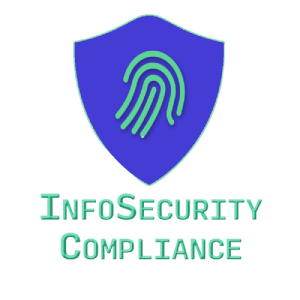Given how rapidly Cyber Security threats emerge and change, it can be hard for companies and regulators to keep up with Cyber Security Compliance. With new industry standards and regulatory requirements impacting all industries, Cyber Security Compliance becomes a driving force underlying business success.
As the number and severity of Cyber attacks increases, industry standards organizations and governments seek to enforce Cyber Security by establishing more stringent compliance requirements. However, compliance requirements often lag behind Cyber Security Risk. Therefore, to prepare for changing compliance requirements, organizations need to create a security-first approach to cybersecurity so that they can stay ahead of the evolving requirements.


What are the data breach risks?
The 2020 Data Breach Investigation Report noted several trends.
28% of data breaches involved small businesses
70% of breaches were perpetrated by outsiders
45% of breaches featured hacking
22% of breaches included social engineering
86% of breaches were financially motivated
More than 25% of breaches still take months or more to discover.
The newest statistics indicate that cybercriminals target small businesses to gain unauthorized access to data that they can sell on the dark web. Hacking and social engineering attacks focus on exploiting weaknesses in systems, networks, software, and people to gain entry.
Many small businesses currently lack the appropriate resources necessary to defend against these attacks, which increases the likelihood that cybercriminals will continue to target them.
Benefits of ISO include:
• Reducing Risks
• Comply with legislation,
• Increase Profit
•Increase Customer Satisfaction,
And plenty more!


What is Compliance?
In general, compliance is defined as following rules and meeting requirements. In Cyber Security, Compliance means creating a program that establishes risk-based controls to protect the integrity, confidentiality, and accessibility of information stored, processed, or transferred.
However, Cyber Security Compliance is not based in a stand-alone standard or regulation. Depending on the industry, different standards may overlap, which can create confusion and excess work for organizations using a checklist-based approach.
For example,
• The healthcare industry needs to meet Health Insurance Portability and Accountability Act (HIPAA) compliance requirements.
• If a provider also accepts payments through a point-of-service (POS) device, then it also needs to meet Payment Card Industry Data Security Standard (PCI DSS) requirements.
• Companies that serve customers or do business with individuals in the European Union must comply with the EU General Data Protection Regulation (GDPR)
• Businesses meeting certain criteria that have customers in California must comply with the California Consumer Privacy Act (CCPA).
• ISO certification can be used to provide potential customers with independent validation of an organization’s conformity.
Moreover, as compliance requirements shift from control-based to risk-based, the landscape of cybersecurity compliance also shifts.


What types of data are subject to Cybersecurity compliance?
Cyber Security and data protection laws and regulations focus on the protection of sensitive data, such as personally identifiable information (PII), protected health information (PHI) and financial information.
Personally identifiable information includes any information that uniquely identifies an individual, such as: First and last name, Date of birth, Social security number, Address, Mother’s maiden name.
Protected health information includes information that could be used to identify an individual or details regarding their health history or treatments, such as: Medical history Records of admissions, Prescription records, Information about medical appointments, Insurance records.
Financial data includes information about payment methods, credit card numbers, and other details that could be used to steal an individual’s identity or financial resources. Stolen credit card numbers, for instance, can be used to make unauthorized purchases.
Sensitive financial data includes: Social security numbers, Credit card numbers, Bank account numbers, Debit card pin numbers, Credit history and credit ratings.
Other sensitive data that may be subject to state, regional, or industry regulations includes: IP addresses, Email addresses, usernames and passwords, Authenticators, including biometrics such as fingerprints, voice prints, and facial recognition data Marital.
Companies can benefit significantly from ISO Standards and other risk management systems, especially since the information they hold is highly sensitive.
Benefits of Cybersecurity Compliance:
Organizations subject to industry or regional Cyber Security regulations are required by law to meet compliance and take the prescribed actions following the discovery of a data breach. Companies found to be non-compliant may face stiff fines and penalties should they suffer a breach. Strict adherence to Cyber Security Compliance requirements reduces the risk of a data breach and the associated response and recovery costs, as well as the less-quantifiable costs of a breach such as reputation damage, business interruption, and loss of business.
Having robust Cyber Security Compliance measures in place, on the other hand, enables you to protect your company’s reputation, maintain consumer trust, and build customer loyalty by ensuring that your customer’s sensitive information is safe and secure. Plus, with clear and consistent systems for managing, storing, and using sensitive data, your business will benefit from greater operational efficiency.
Meeting regulatory compliance standards and requirements has benefits for organizations beyond protecting sensitive data as required by law. Implementing the appropriate safeguards and security measures to protect sensitive customer and employee information bolsters your company’s security posture, which also helps to protect intellectual property such as trade secrets, software code, product specifications, and other information that gives your company a competitive advantage.

